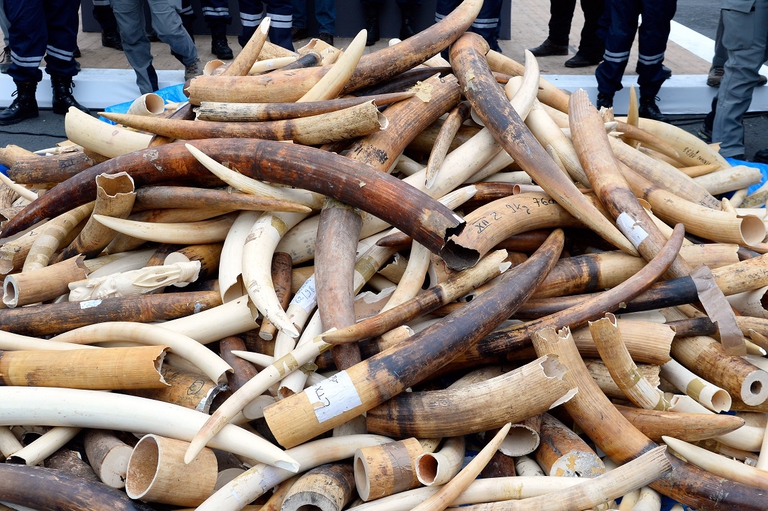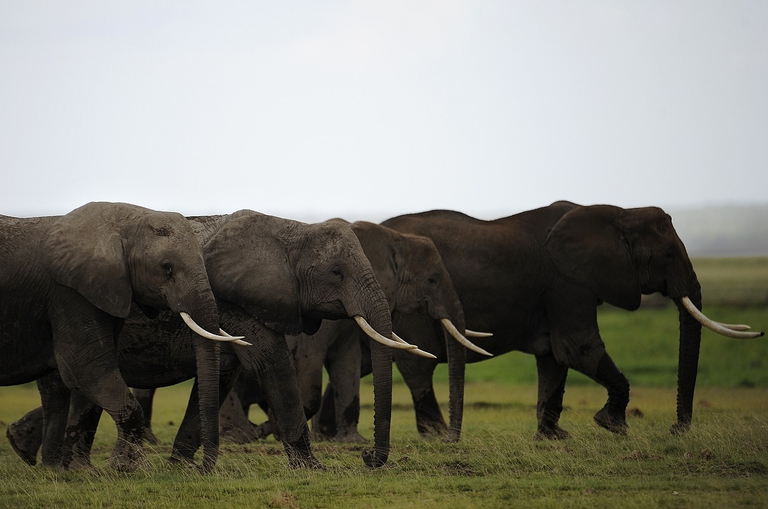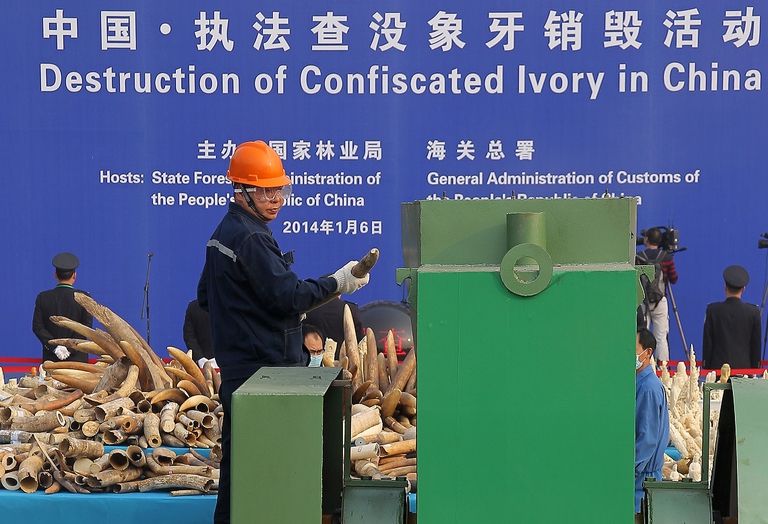
Our species took its first steps in a world covered in trees. Today, forests offer us sustenance, shelter, and clean the air that we breathe.
Entro la fine del 2017 in Cina sarà vietata la vendita e la trasformazione di avorio per contrastare il bracconaggio di elefanti.
It’s better late than never. China announced it will ban ivory trade by the end of 2017. The historic decision could put an end to the world’s largest ivory market and strike a major blow to elephant poaching in Africa – it is estimated that 50 to 70 per cent of all trafficked ivory ends up in China.
China’s State Council announced that ivory processing and trade will stop by 31 December 2017, while numerous activities linked to ivory trade will be closed by the end of March. The Ministry of Culture will help people employed in the ivory industry, such as master carvers, find new jobs. Those who own ivory objects can auction them off after getting the government’s approval.
The Asian country’s move aims to save African elephants, which are ever more threatened by ivory trade. According to a recent report of the IUCN, elephant populations decreased by 20 per cent from 2006 to 2015, with 415,000 individual now surviving in the wild. Elephants killed for their tusks outnumber births, putting at risk the very survival of the species in Africa.
The announcement has been applauded by major environmental associations. “It’s the biggest and best conservation news of 2016,” said Alex Hofford, activist and photographer based in Hong Kong. According to data released by WWF, some 20,000 elephants are killed each year by poachers. The decision “shows determination to help save Africa’s elephants from extinction,” said Cheryl Lo of WWF Hong Kong. “A ban clearly requires strong enforcement and support from the government to be most effective. But together with China’s announcement, now that three of the world’s largest domestic ivory markets, that is China, Hong Kong and the U.S., are being phased out,” Lo said in a statement. “China is moving from being the main problem to the main solution,” said Iain Douglas-Hamilton, the founder of Save the Elephants.
China’s decision follows years of increasing pressure put by wildlife campaigners at a national and international level. “Chin’s announcement is a game changer for elephant conservation,” said Carter Roberts, the president and chief executive of the World Wildlife Fund.
Siamo anche su WhatsApp. Segui il canale ufficiale LifeGate per restare aggiornata, aggiornato sulle ultime notizie e sulle nostre attività.
![]()
Quest'opera è distribuita con Licenza Creative Commons Attribuzione - Non commerciale - Non opere derivate 4.0 Internazionale.
Our species took its first steps in a world covered in trees. Today, forests offer us sustenance, shelter, and clean the air that we breathe.
Poachers in Africa are encroaching on wildlife land and killing rhinos in travel hot spots now devoid of visitors due to the coronavirus pandemic.
Actor and environmental activist Leonardo DiCaprio has contributed two million dollars to a fund to protect Virunga National Park in Congo from threats such as terrorism, the coronavirus and poaching.
For the first time in seventeen years, Iceland’s two main whaling companies won’t resume whale hunting. The announcement concerns this year’s season but could carry into the future.
The relationship between the coronavirus and wildlife is complex: while the pandemic may lead to a reduction in the illegal trade in wild animals, it may also encourage it in other respects.
The largest coral reef in the world is severely threatened by climate change, but researchers are developing strategies that could contribute to saving the Great Barrier Reef.
NGO Free the Bears has opened a mountain sanctuary for moon bears in Laos. With the government’s help, it aims to close all bile farms by 2022.
Seychelles have extended its marine protected area, which now covers over 400,000 square kilometres, an area larger than Germany.
The tapir was reintroduced into Brazil’s Atlantic Forest, the country’s most at-risk ecosystem. The species can play a key role in the forest’s recovery.










